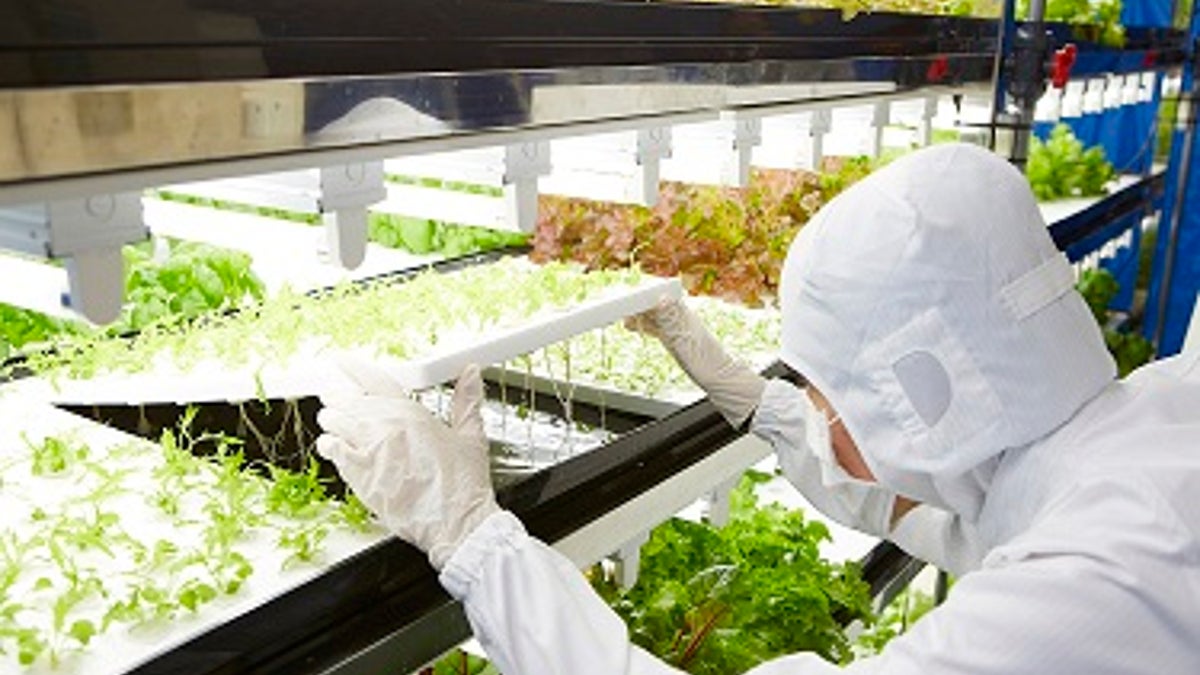
A scientist examines baby lettuces growing. (Toshiba Corporation)
There’s a brand new product from tech giant Toshiba. It’s not a laptop, television, or even a smart phone.
It’s lettuce.
The company has transformed its sterilized clean room, previously used to assemble floppy disks in a bygone technology era, to grow thousands of lettuce plants without sun or soil, reports Quartz.
Farm to table? More like lab to table.
Toshiba is moving into the indoor agriculture space under its healthcare business division in an effort to create a new line of fresh lettuces and salads.
The company said it has an advantage as a food producer because it manufactures most of the equipment (artificial lighting, power generation, apparatuses that disinfect water, and of course the tablets used to control the temperature and environment) used to grow the plants.
This “clean room crop” doesn’t need pesticides, isn’t exposed to bugs and therefore doesn’t need washing.
Aside from looking cool, the futuristic operation has practical applications for countries like Russia and certain parts of the Middle East where outdoor cultivation is often difficult. The project will also feed Japan--where it's currently only available.
Right now it takes the lettuce just about a month to mature for harvest since the nutrients are injected directly into the plants' roots.
Current crops in the lineup include Swiss chard, arugula, spinach and red oak lettuce among other leafy varieties. Toshiba estimates that it will soon be able to produce 3 million heads of lettuce a day, generating tens of millions for the company.
And apparently it tastes pretty great, too.
Quartz notes that Toshiba isn’t the first Japanese company moving into the food space. Fujitsu is growing lettuce and Sharp has strawberry field in Dubai.
Toshiba’s lettuce operation started in September 2013 and has plans to expand into herbs and other vegetables soon. The company hopes to make the produce available in Japanese supermarkets next year. The first product up for sale soon will be a salad available with or without dressing (sesame or Caesar) in the company’s own cafeterias.
